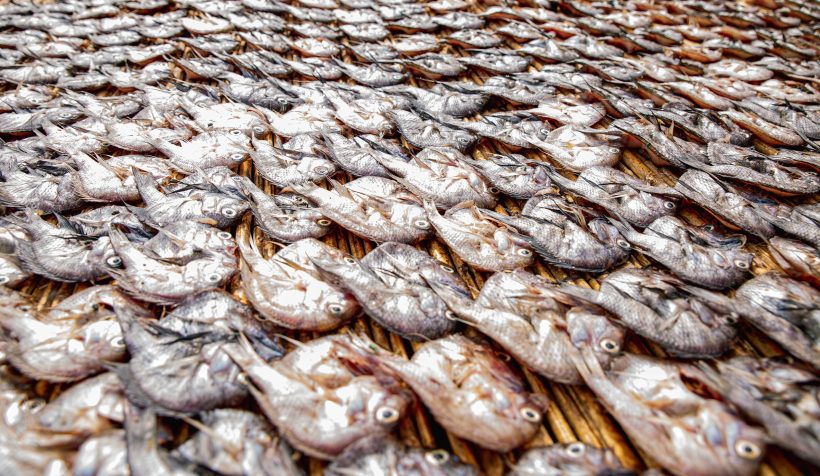
 Fish plays a significant role in the Beninese protein supply. In rural Benin, aquaculture has contributed significantly to the livelihoods and food security of the farmers. From employment opportunities to high-quality animal protein to essential nutrients, aquaculture has evolved to provide smallholder households with better access to resources.
Fish plays a significant role in the Beninese protein supply. In rural Benin, aquaculture has contributed significantly to the livelihoods and food security of the farmers. From employment opportunities to high-quality animal protein to essential nutrients, aquaculture has evolved to provide smallholder households with better access to resources.
Like other industries, fish farming has not been spared by the shocks of the COVID-19 pandemic. The pandemic has evoked several challenges in the agricultural sector, including a drop in fisheries production and trade. Growing evidence has linked the upset in the fisheries’ upstream value chain to the pandemic.
At the start of the pandemic in 2020, governments and other actors along the fisheries value chain sought temporary measures to cushion their countries from the developing effects of the pandemic. However, new challenges have been calling for more prolonged and lasting solutions. The United Nations Food and Agricultural Organization (FAO) notes that already some lessons are emerging on ways to build back better to ensure that the resilience of aquatic food value chains is strengthened to endure future crises.
Fisheries Scientist and 2019 One Planet Laureate Candidate Dr. Toundji Olivier Amoussou is among the scientists leading research to help Beninese smallholder fish farmers mitigate the effects of COVID-19. Toundji led a team of eight scientists in the publication of a new study on “The multifactorial aquaculture-related COVID-19 shock in Benin, West Africa: A socio-economic perspective of mitigating the disruptive impacts on the small-scale and subsistence producers.”
The study reveals that Benin’s aquaculture heavily depends on small-scale and subsistence producers (SSAPs) who rely on inputs and equipment from markets overseas. The dependence on overseas inputs leaves the SSAPs vulnerable to market shocks due to COVID-19 restrictions. Hence the need to evaluate the impact of COVID-19 on Benin’s fisheries sector.
Their findings uncovered that increased input prices severely affect most of the value chain. The study cited that inadequate access to quality inputs has led to the disruption of fish growth and, thus, the production cycle.
Fish is essential nutrition in the diet of vulnerable communities, and additional aquaculture development could reduce food insecurity among these communities. The research concludes that short, medium and long-term mitigation measures like adopting existing local technologies and modern digital options could help farmers cope with future disruptions.
Recognizing that the pandemic is still here and the effects are evolving daily, the research provides insightful recommendations to the scientific community. The researchers urge the scientific community to propose incentive-based alternative options (e.g., affordable production systems and efficient micro-credit model) to motivate SSAPs to continue with aquaculture and guarantee the farmers’ sustainable livelihoods.
